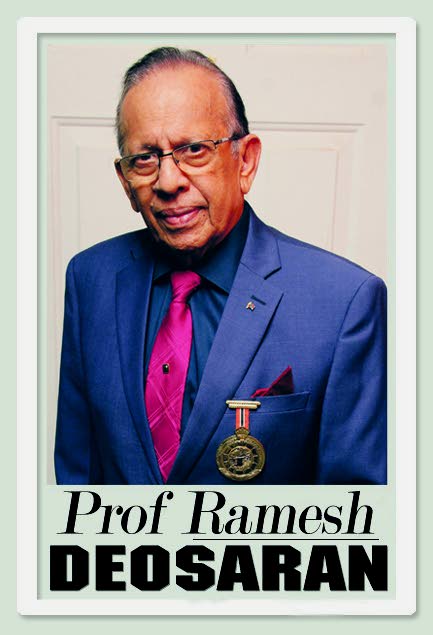Criminology, murders, police

On a lively 45-minute radio (102.1 FM) conversation on September 4 on youth crime, policing, education and criminology with Dr Paul Richards (host), Richard Ragoobarsingh and Wendell Stephen, we briefly examined how tackling only “big” issues could leave “smaller” ones dangerously lagging.
An example of a “small issue”: Why are the licence plates of vehicles still being made in a few minutes by private dealers and not, as repeatedly promised, by government?
This “minor” issue is critical for police surveillance and investigations. The police could tell you the many times when they thought they had found the getaway car and the criminals, but it turned out to be a car with false numberplates, and worse yet, somebody else's numberplates.
Well, Police Commissioner Erla Harewood-Christopher should press National Security Minister Fitzgerald Hinds, Works Minister Rohan Sinanan and the National Security Council chairman, the PM,to remedy the situation to help the police.
Another “minor” issue arises from the citizen-partnership (community policing) the police repeatedly ask for. When citizens make reports about murders, kidnapping, home invasions, larceny or business robberies, domestic violence, etc, citizens and police should be sure that the licence plate they identify is the lawful one.
If the concern is about private dealers, then the government agency should use these private dealers, but retain final registration and manufacture. We already had numerous expensive consultancies, foreign and local, on this problem. Leaving it so will have a negative impact on police investigations and the detection rate for murders too. (The murder figure is now over 400)
I realise the fall-out from civic-minded talk-shows, editorials and commentaries is that, rather than stimulating official remedies, they remain dangling in the crowded air. Public opinion should have greater effect in a democracy.
Another “minor issue”: Coupled with this intelligence deficiency are the numerous streets across the country with no signs – municipal corporations’ failure. How exactly will the police or ambulance know where to go to follow up on an emergency report, especially when houses are not yet numbered or codified, as promised years ago?
Discussing police competence with independent senator Richards, I briefly suggested upgrading police entry qualifications. There are many compelling reasons for doing this in a modernised police service, as so many other countries have done. One human-resource reason is to have police officers (especially constables, corporals, sergeants) intellectually prepared to benefit from the high-level training programmes they are exposed to. In addition, complex new laws require higher competencies from the police.
Check how many cases are lost for this reason. This progressive policy should be that within the next five to seven years, entry will require at least a university certificate which could then be used for the diploma, degree, master’s, even a PhD for improved understanding, performance and promotion. (This has already been recommended by Cabinet Police Manpower Audit Committee.) Municipal police qualifications also need serious upgrading.
While at UWI, noting the training and security needs of the society, and with then principal Compton Bourne’s support, I developed the master’s and PhD in criminology and criminal justice which some officers, and even judges, voluntarily took. Courses were both in theory and practice.
I also established the Centre of Criminology and Criminal Justice and the Journal of Criminology and Social Psychology to help feed research into the teaching programmes. Criminology is heavily founded in sociology, with its research largely based on social psychology. I therefore utilised the heavily-enrolled BSc in psychology I previously developed for a multi-disciplinary approach. With the late Anthony Sabga’s help, I established the Ansa McAL Psychological Research Centre at UWI as a researcher feeder.
Further, when I moved to the University of TT (UTT), with strong support from UTT president Prof Ken Julien, I developed the Institute of Criminal Justice and Public Safety and three heavily-enrolled programmes – the certificate in security and public safety, and the diploma and BSc in applied criminology and public safety.
And so criminology and psychology came alive here. The opportunities are there.
However, efforts to push these programmes forward taught me a lot about university politics. My 13-year parliamentary experience as an independent senator helped me.
The plan was to strategically use these UTT undergraduate programmes as entry into the UWI MSc and PhD programmes. Again, the opportunities are there. Let’s use them, while the absence of street signs and the unlawful licence plates should also be quickly remedied.


Comments
"Criminology, murders, police"